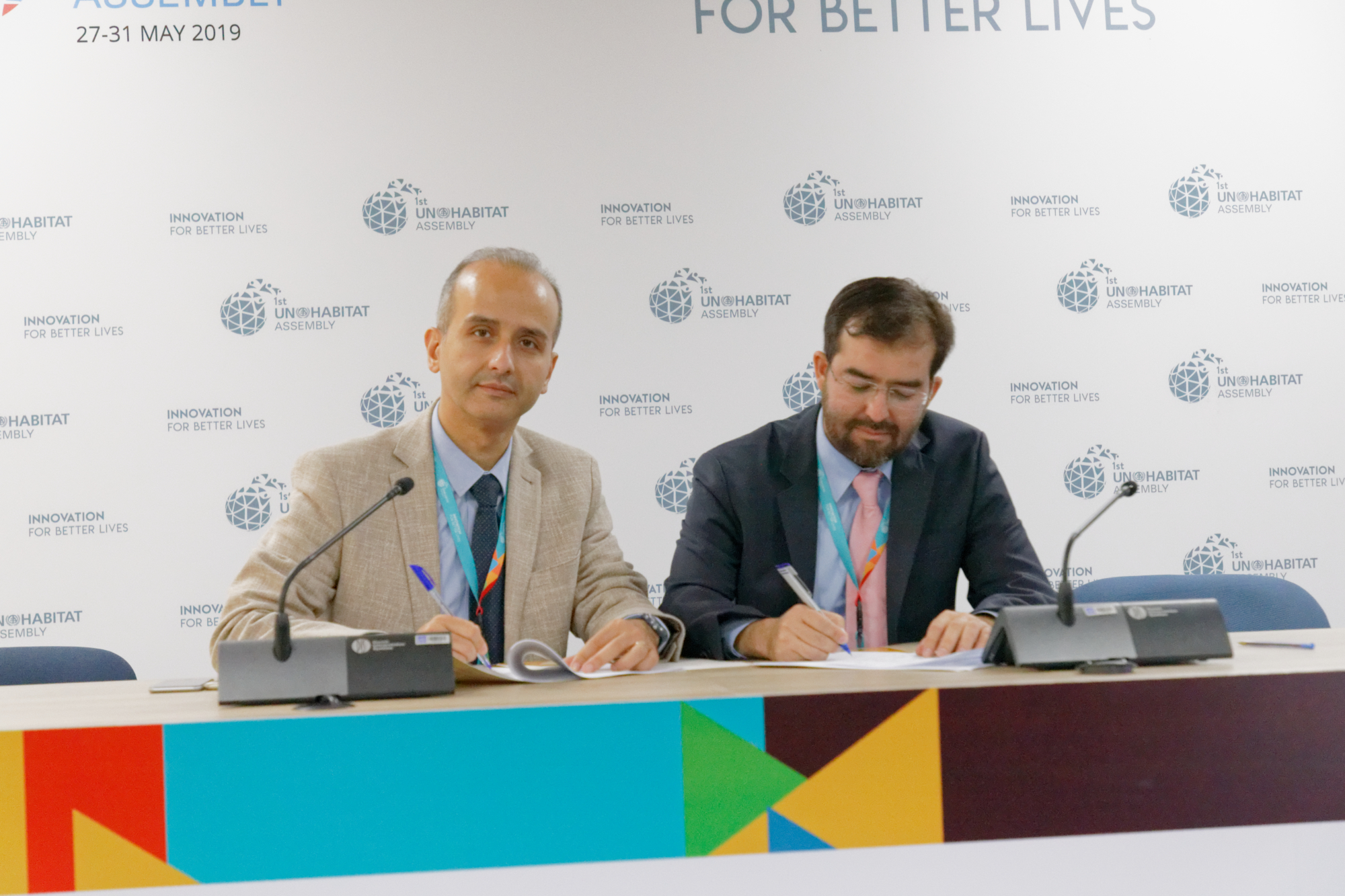NAIROBI, 30 May 2019 – UN-Habitat, World Green Building Council and Chatham House signed a Memorandum of Understanding (MoU) during the firstUN-Habitat Assembly to develop a regional agenda for sustainable recovery, regeneration and reconstruction for the Arab region. The MoU was signed by Mr. Mohammad Asfour, Regional Head, MENA Network, World Green Building Council and Dr. Erfan Ali, Director of the Regional Office for Arab States, UN-Habitat.
The MoU will lay the groundwork for a regional agenda for sustainable recovery, regeneration and reconstruction in which the re-built environment contributes to healthy, resource-secure and climate-resilient societies. This regional agenda will be aligned with principles of sustainable development and build back better anchored in the UN Agenda for Sustainable Development 2030, the New Urban Agenda, the Sendai Framework for Disaster Risk Reduction, the Paris Agreement and other global agendas. Research into past experience, local cultural practices and inspiring adaptive examples will be coupled with intensive cross-sector dialogue to develop geographically appropriate principles and actionable guidelines for sustainable post-conflict reconstruction in Arab cities.
Dr Erfan Ali, Director of Regional Office of Arab States of UN-Habitat said “UN-Habitat is pleased to be part of this strategic partnership with WGBC and Chatham House aiming to embrace and promote the “building back better” principles in recovery and reconstruction in the Arab region. This initiative will scale up resilient and sustainable urban planning and management practices among city planners and managers working in crisis settings and will harness the potential of Arab cities to meet current and future challenges of infrastructure damage, exclusion, resilience-building and climate change.
Urban areas and essential infrastructure across Syria, Iraq, Yemen, Libya and Gaza have suffered large-scale damage and destruction due to multiple, recent and on-going conflicts. These countries also face severe levels of water stress and environmental degradation overlaid by climate change. Extreme temperatures coupled with lack of access to power are already exacerbating inequalities across the region. Reconstruction is already taking place and is likely to do so largely in a vacuum of environmental regulation, reducing countries’ long-term prospects for the inclusion of returnees, social stability and economic recovery.
Mohammad Asfour, Head of MENA Regional Network, World Green Building Council said: "We are delighted to collaborate with UN Habitat and Chatham House. Developing guidelines for sustainable reconstruction will enable us to help those responsible for the rebuilding of cities and neighbourhoods to avoid mistakes made in the past, and ensure we help create sustainable, resilient and happier communities for the future. With the impacts of climate change felt increasingly throughout the MENA region, and along with the need for reconciliation, there has never been a greater need for these guidelines, so we welcome this opportunity to make critical progress in rebuilding our societies sustainably."
